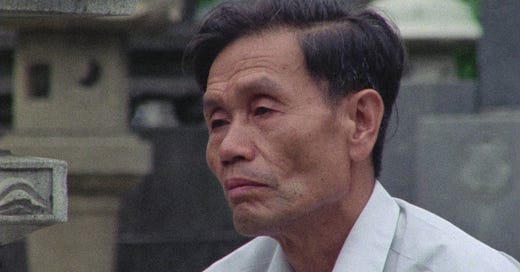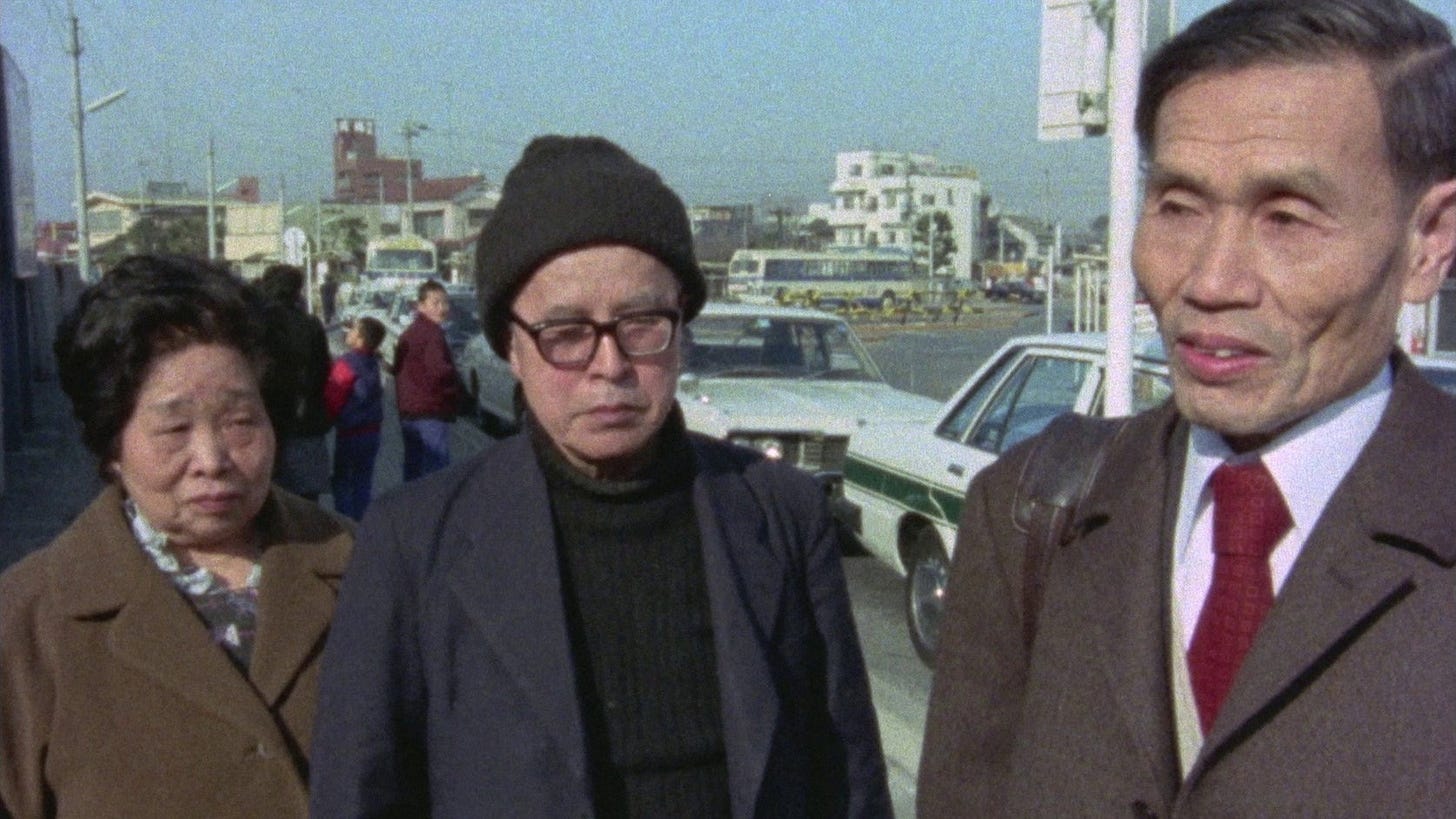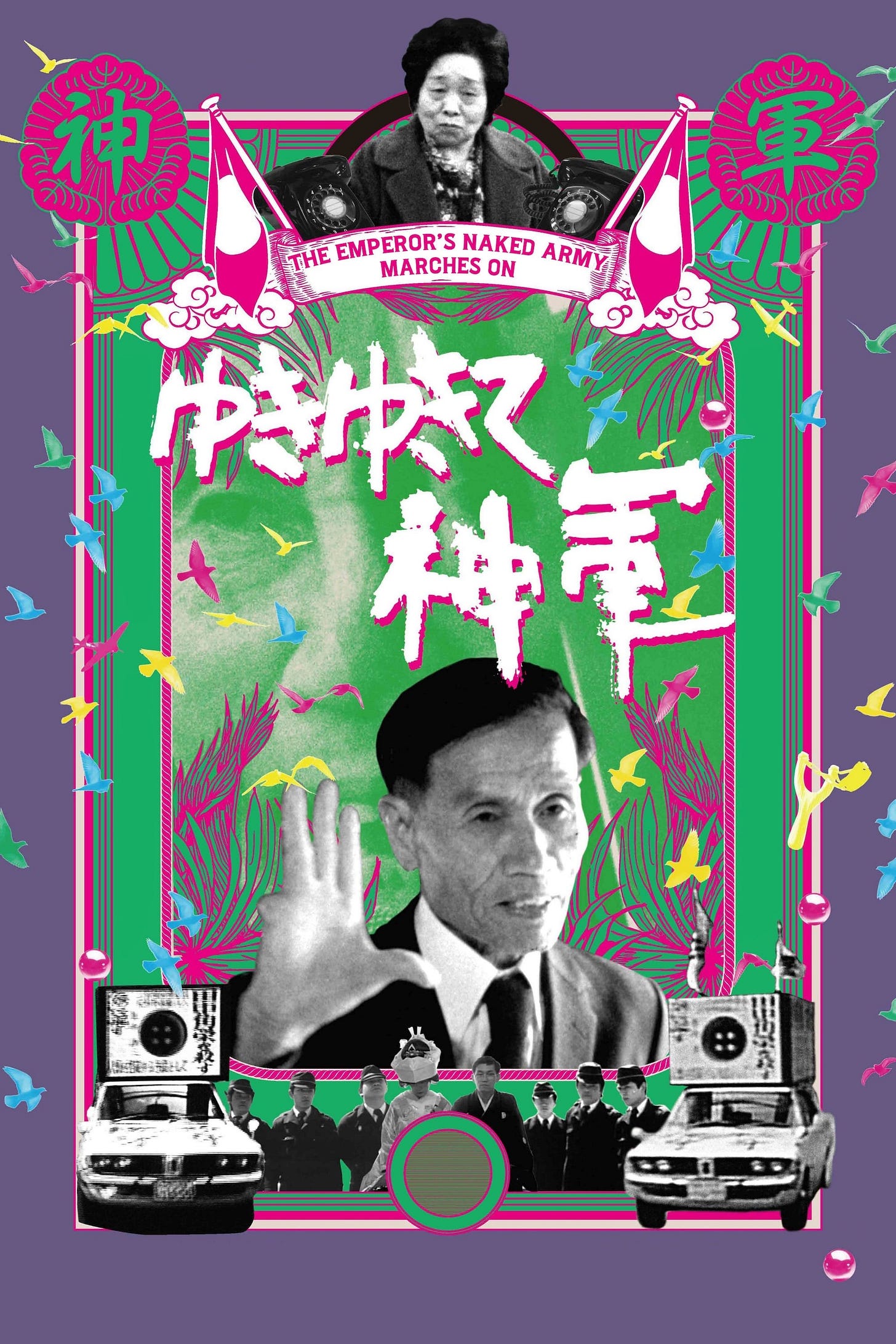There are no heroes in war. Only victims.
The central narrative of The Emperor's Naked Army Marches On is the pursuit of truth at any cost.
Kazuo Hara's focus is on Kenzo Okuzaki, a 62-year-old war veteran who served in Japan's New Guinea campaign in WWII. After the war concluded two solders in his unit were put to death by firing squad, and even though it's been forty years since the events transpired Okuzaki has made it his mission to find out what really happened.
Okuzuki is a brash individual, and at the start of the documentary he has served jail time for three prior convictions: manslaughter, throwing pachinko balls at the Emperor, and passing out fliers with a pornographic image of the Emperor on it. Needless to say, the man is not afraid of conflict.
Okuzuki himself is an interesting individual that is comprised of contradictions and he oscillates frequently between egotistical manic highs and self-depreciating and humble lows. It could all be an act, because he uses whatever means necessary to extract information from people, even at times, resorting to violence.
The film follows him around as he confronts former members of his unit trying to ascertain what actually happened when the two soldiers were executed. Okuzuki goes to their houses unannounced, often extremely early in the morning, and interrogates them mercilessly until the tell him what he wants to know.
Interestingly, though Okuzuki himself has no regard for politeness, he uses these cultural norms against the people he is questioning, often preying on their want to appease him and to also not lose face. Director Hara has a way of framing each encounter eloquently, always placing his camera directly in the center of the fray, making the audience feel like they are part of the proceedings.
This documentary is just as much about Okuzuki testing the limits of Japanese society with his methods as it is about finding out what happened with the soldiers. Okuzuki states in the film that "violence is my forte" and he physically assaults several people in his crusade for the truth.
One might question the moral obligation of Hara to stop these violent encounters, but he is, for better or worse, just recording life as it happens, an indifferent eye that is merely a window into the situation. As the film progresses, information comes to light that changes the entire dynamic of the narrative, and it culminates in a shocking ending.
It is interesting to speculate on the fact that, had Hara not made this documentary in the first place then things wouldn't have turned out the way they did, but ultimately he is not responsible for the actions of other people. This documentary is a harrowing look into the real cost of war.





